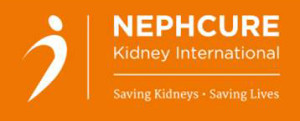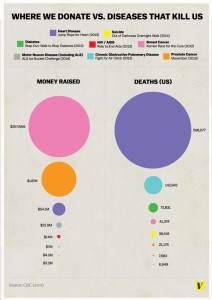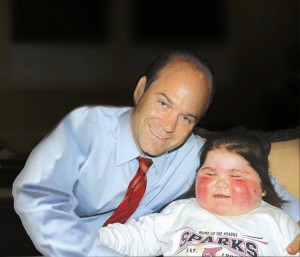 The burden of chronic kidney disease (CKD) is growing, with one in 10 U.S. adults having some level of CKD. End-stage renal disease (ESRD) is the last phase of CKD, when dialysis or an organ transplant are required. Nephrotic syndrome is one of the most common forms of CKD, and focal segmental glomerulosclerosis — FSGS — is the fastest-growing cause of nephrotic syndrome in children, and the second-leading cause of kidney failure in children.
The burden of chronic kidney disease (CKD) is growing, with one in 10 U.S. adults having some level of CKD. End-stage renal disease (ESRD) is the last phase of CKD, when dialysis or an organ transplant are required. Nephrotic syndrome is one of the most common forms of CKD, and focal segmental glomerulosclerosis — FSGS — is the fastest-growing cause of nephrotic syndrome in children, and the second-leading cause of kidney failure in children.
I spoke with Gigi Peterkin, a longtime colleague of mine who has helped guide my own digital footprint in health. Gigi is Global Director of Marketing at The NephCure Foundation, an organization exclusively focused on supporting research for improving treatment and curing FSGS and nephrotic syndrome. When we met up for this update, Gigi and her colleagues were preparing to ring the opening bell at the New York Stock Exchange the following day. Here’s a transcript of our discussion.
Congratulations to NephCure Kidney International on ringing the opening bell at the New York Stock Exchange on August 15. What was that experience like? It was overwhelming to walk onto the trading floor of the NYSE and see the NephCure Kidney International logo displayed on huge screens around the room. What a moment of exposure for our rare disease community; it was emotional for everyone. We were thrilled to be invited and given this opportunity to raise awareness about advocacy for FSGS and Nephrotic Syndrome patients. Along with our CEO Mark Stone and Director of Operations Jessica Martin, we shared the podium with (pause) – I don’t want to use the word patients – members of the NephCure family. The Genatt family joined us, along with their daughter Alison, who received a kidney from her mom four years-ago and is currently free from the symptoms of FSGS. Five-year-old Jed Silverman rang the bell for us, and was there along with his father Andrew Silverman and grandfather Joe. Jed was diagnosed when he was just two and has endured more than 50 hospitalizations in his young life. Tim Brink also made the trip to NYC to be there for NephCure. Tim has had four kidney transplants that failed (FSGS has a 30% chance of recurring after a transplant), and he currently lives his life on dialysis. Board members Ronald Cohen, Michael Levine, and Manu Varma rounded out our group; Ron’s grandson and Michael’s son each live with the challenges of FSGS and fight this disease every day.
NephCure is one of several prominent health advocacy organizations focused on kidney disease. You’ve mentioned the disease FSGS – is this the focus of NephCure’s advocacy? FSGS is one of the diseases we focus on in a group of diseases that cause the condition Nephrotic Syndrome. FSGS is Focal Segmental Glomerulosclerosis, which is a devastating disease that can affect anyone – it is not purely genetic, affects both children and adults, and people all races. Like all chronic kidney diseases, it has significant impact on African Americans. This disease causes scarring of the glomeruli, which are the filters in our kidneys. When the filters become scarred, they allow large amounts of protein to spill out of the blood and wash away in the urine, a condition called proteinuria. This loss of blood proteins can lead to high blood pressure, swelling in the hands, feet and other areas of the body, producing debilitating effects. As the disease progresses, the kidneys become more damaged and people experience reduced kidney function, leading to kidney failure in 40-60% of cases over as little as 5-10 years. There is no cure. Treatment is usually high dose steroids which cause additional debilitating effects for the patient. It is a challenging disease to manage and affects the lives of patients and their families in a profound way.
NephCure was founded by four families with children diagnosed with FSGS. They banned together to create an organization that would not only raise awareness around this rare disease and generate new funding from institutions such as NIH, but to also raise money to award grants directly to scientists to focus on this line of research. NephCure has committed $14M to research directly in the past 10 years and leveraged millions more from NIH to accelerate research. Progress has been made in discovering possible causes, but new drugs have yet to be developed. We call ourselves a patient-centric, research-focused organization; patients are the reason we come to work every day. Yet, we recognize that research must be funded, and awareness must be raised to help these diseases become a higher priority in the drug development pipeline. Better treatments and cures must be found as soon as possible.
Tell me about your tagline, “Saving Kidneys, Saving Lives.” Kidney disease kills more than 90,000 Americans every year, more than breast cancer and prostate cancer combined. Because there are often no symptoms associated with chronic kidney disease, it can go undetected until it is very advanced. One last statistic: of the 120,000 Americans on the waiting list for a living organ transplant, more than 99,000 need a kidney; add to that the complication that more than 30% of FSGS patients will experience disease recurrence after a kidney transplant, and you can see the odds are challenging at best. A kidney transplant provides hope, but not a cure. We believe that by funding research to enable better treatments, we can help people keep their native kidneys longer, and help to prolong lives.
Many people are shocked to learn how devastating these diseases are for children and adults. I think when we hear that people experience swelling around the eyes and face, many of us paint a picture in our brain of a little puffiness. This is not the case. I’ve spoken with FSGS patients who’ve experienced so much swelling that their skin has cracked and they’ve spilled fluids on the floor – an absolutely painful and terrifying experience for anyone. You can see the extremes in the photos below. These photos are of the same girl, Lindsay Duquette. The first one is a photo Lindsay and her father Jim Duquette after her FSGS diagnosis. The extreme swelling and redness is a result of the damage to her kidneys from FSGS, and treatments failing to work to stem the progress of her disease. The second photo is a recent picture of Lindsay, after her kidney transplant (her father donated one of his kidneys), and currently free of FSGS symptoms. You can see the marked difference in the two photos.
What’s NephCure’s approach to patient-powered research? We believe in helping patients become their own best advocates. Patients and their caregivers are the best source of information about their symptoms, how they feel from day-to-day, what types of treatments would be most beneficial to quality of life, and the side effects they can live with. There is a growing trend recognizing that patients should have a role in influencing research that will have a direct effect on their lives. We need a relentless pursuit of a cure, and new therapies that improve the quality of someone’s life. The ability to return to school or earn a living are huge issues for people living with a chronic disease, and more research is necessary around quality of life and patient reported outcomes.
NephCure is proud to contribute to this effort through the creation of a patient-powered research network (PPRN), which we call the NephCure Kidney Network (NKN). The NKN is open to any FSGS patient as well as others with chronic kidney diseases that cause primary Nephrotic Syndrome such as Minimal Change Disease, Membranous Nephropathy and related diseases such as IgA Nephropathy. Patients enroll themselves in this registry and record information about their medical and social journey with these diseases. This information is de-identified and shared with researchers and clinicians seeking to develop the next great treatments, and eventually cures, for these diseases and conditions. Another critical element of NKN is building a community of people motivated to participate in clinical research. More than 80% of clinical trials fail, primarily due to low enrollment. We’re hoping to support the patient and research communities by providing a repository of data about rare diseases needing better treatments. People can learn more about the NKN and register at www.nephcurekidneynetwork.org.
You personally have a very strong background in social networks and digital health. What are some of the plans you can share to turbocharge NephCure in social and digital? You could say I’ve been around the digital health block a time or two. Earlier this year, we launched our campaign to STAND UP & BE COUNTED (#SUBC). The campaign included several different components, including outreach via social media, primarily through our FaceBook and Twitter accounts. The idea was simple: we have the power to help each other through small acts. We asked the question “Who are you standing up for in the fight to end FSGS?” and encouraged everyone to write the name of the person they wanted to help on #SUBC signs we made available for download. We asked people to post and share selfies holding their #SUBC signs, and we received $5 from a challenge grant for each photo posted. The #SUBC social media outreach ran for two weeks; in that time we were thrilled to record 602.9K impressions and 10.4K interactions by more than 5.3K unique users. We also raised $12,000.
Those two weeks demonstrated the power in our numbers, and what we can accomplish by reaching and educating a wider audience. In the future, we plan to build on this momentum with a crowd funding campaign, to share more about our events and fundraisers online, and (spoiler alert) maybe even hold a video contest or two! The sky’s the limit, and we are dedicated to raising awareness, helping patients and accelerating research!
 Health Populi’s Hot Points: I’ve been thinking about the infographic shown here, picturing where we donate compared with what diseases more predominantly “kill us” based on data from the Centers for Disease Control. Health is personal to “me,” to “you,” to each of us. In this chart, kidney disease doesn’t even appear as a dot on either the donation or the mortality sides of the chart.
Health Populi’s Hot Points: I’ve been thinking about the infographic shown here, picturing where we donate compared with what diseases more predominantly “kill us” based on data from the Centers for Disease Control. Health is personal to “me,” to “you,” to each of us. In this chart, kidney disease doesn’t even appear as a dot on either the donation or the mortality sides of the chart.
Kidney disease is managed as a chronic condition as long as a patient has access to dialysis, an organ transplant, or a narrow-focused specialty drug. As we ponder the mission of NephCure, keep in mind the larger theme of how our society and the health economy deal with rare diseases.
 Now check out the second infographic, this one from The National Kidney Foundation, and you’ll learn that 59% of people are at-risk for developing some form of kidney disease in “our” lifetime. This is greater than risk for heart attack, diabetes, and invasive cancer.
Now check out the second infographic, this one from The National Kidney Foundation, and you’ll learn that 59% of people are at-risk for developing some form of kidney disease in “our” lifetime. This is greater than risk for heart attack, diabetes, and invasive cancer.
When we think about the issue of so-called “rare” diseases, we should be mindful that we are all part of the larger health ecosystem…whatever organ may be involved in our personal long-run.






 Thank you FeedSpot for
Thank you FeedSpot for